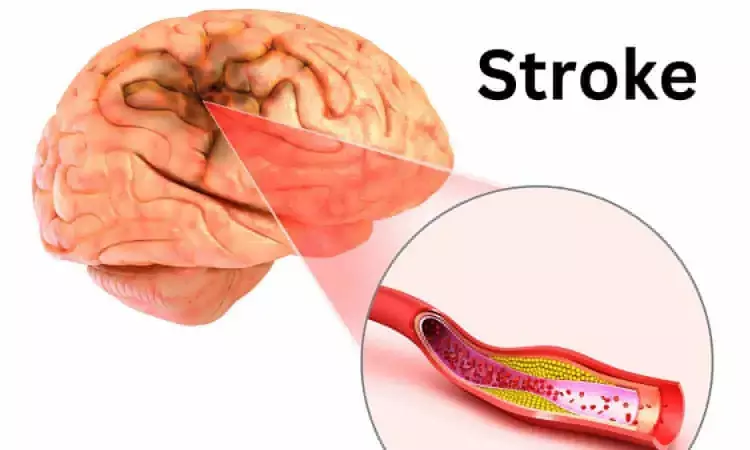- Home
- Medical news & Guidelines
- Anesthesiology
- Cardiology and CTVS
- Critical Care
- Dentistry
- Dermatology
- Diabetes and Endocrinology
- ENT
- Gastroenterology
- Medicine
- Nephrology
- Neurology
- Obstretics-Gynaecology
- Oncology
- Ophthalmology
- Orthopaedics
- Pediatrics-Neonatology
- Psychiatry
- Pulmonology
- Radiology
- Surgery
- Urology
- Laboratory Medicine
- Diet
- Nursing
- Paramedical
- Physiotherapy
- Health news
- Fact Check
- Bone Health Fact Check
- Brain Health Fact Check
- Cancer Related Fact Check
- Child Care Fact Check
- Dental and oral health fact check
- Diabetes and metabolic health fact check
- Diet and Nutrition Fact Check
- Eye and ENT Care Fact Check
- Fitness fact check
- Gut health fact check
- Heart health fact check
- Kidney health fact check
- Medical education fact check
- Men's health fact check
- Respiratory fact check
- Skin and hair care fact check
- Vaccine and Immunization fact check
- Women's health fact check
- AYUSH
- State News
- Andaman and Nicobar Islands
- Andhra Pradesh
- Arunachal Pradesh
- Assam
- Bihar
- Chandigarh
- Chattisgarh
- Dadra and Nagar Haveli
- Daman and Diu
- Delhi
- Goa
- Gujarat
- Haryana
- Himachal Pradesh
- Jammu & Kashmir
- Jharkhand
- Karnataka
- Kerala
- Ladakh
- Lakshadweep
- Madhya Pradesh
- Maharashtra
- Manipur
- Meghalaya
- Mizoram
- Nagaland
- Odisha
- Puducherry
- Punjab
- Rajasthan
- Sikkim
- Tamil Nadu
- Telangana
- Tripura
- Uttar Pradesh
- Uttrakhand
- West Bengal
- Medical Education
- Industry
Anxiety Strongly Linked to Cognitive Impairment After Hemorrhagic Stroke: Study

Anxiety has been found to have a significant association with cognitive impairment at three months after hemorrhagic stroke, according to a new study published in The Journal of Neuropsychiatry and Clinical Neurosciences. The finding points out the psychological and cognitive burden faced by patients recovering from intracerebral hemorrhage (ICH) or subarachnoid hemorrhage (SAH) and underlines the use of integrated neuropsychiatric rehabilitation in post-stroke care. The study was conducted by Sammi Z. and colleagues.
Although physical recovery remains a major focus of stroke rehabilitation, cognitive deficits and psychiatric issues, including anxiety, depression, and sleep disturbance, are increasingly recognized as critical determinants of long-term recovery and independence. This study aimed to assess the relationships among cognitive impairment, psychiatric symptoms, and functional status three months after hospital discharge.
The study included 101 patients who suffered from nontraumatic ICH (N=62) or SAH (N=39). Follow-up for all patients was performed three months after their discharge through telephone assessments. Neuropsychiatric outcomes were measured using the Neuro-QoL cognitive function, anxiety, depression, and sleep disturbance short forms. Functional recovery was assessed by the mRS, a standard tool for describing the degree of disability after stroke. Patients were classified based on cognitive performance into those with poor cognition using the Neuro-QoL T score ≤ 50. The study then analyzed the relationships between poor cognition, functional outcomes, and psychiatric symptoms in both the overall hemorrhagic stroke group (ICH + SAH) and the ICH subgroup alone.
Key Findings
The results showed remarkably high rates of post-stroke cognitive and emotional impairment:
• 51% of patients had poor cognition three months after the hemorrhage.
• 61% demonstrated functional dependence, as represented by mRS scores of 3–5, which indicate moderate to severe disability.
• Anxiety was reported by 43%, depression by 28%, and sleep disturbance by 31%.
In the univariate analysis of the entire cohort, poor cognition was significantly associated with:
• Anxiety, depression, sleep disturbance, and mRS scores of 3–5, p < 0.05.
However, multivariate analysis refined these relationships to show two key associations:
• Anxiety (OR = 4.38, 95% CI = 1.30–14.74, p = 0.017)
• Functional disability (mRS 3–5) (OR = 6.15, 95% CI = 1.96–19.32, p = 0.002)
• In the analysis of only patients with ICH (N=62), univariate analyses showed that poor cognition was associated with anxiety, sleep disturbance, and mRS 3–5 (p < 0.05).
• In this subgroup, multivariate analysis confirmed anxiety as a strong independent predictor of cognitive impairment, with OR = 10.98 (95% CI = 2.32–51.99, p = 0.003).
The findings emphasize that the management of anxiety is a priority in post-stroke care and may be important not only for alleviating emotional distress but possibly for improving cognitive recovery. This suggests that future studies are required to confirm whether treatment of anxiety can lead to a direct improvement in cognitive outcomes in this population, leading to the development of more holistic and effective strategies in stroke rehabilitation.
Reference:
Dr Riya Dave has completed dentistry from Gujarat University in 2022. She is a dentist and accomplished medical and scientific writer known for her commitment to bridging the gap between clinical expertise and accessible healthcare information. She has been actively involved in writing blogs related to health and wellness.
Dr Kamal Kant Kohli-MBBS, DTCD- a chest specialist with more than 30 years of practice and a flair for writing clinical articles, Dr Kamal Kant Kohli joined Medical Dialogues as a Chief Editor of Medical News. Besides writing articles, as an editor, he proofreads and verifies all the medical content published on Medical Dialogues including those coming from journals, studies,medical conferences,guidelines etc. Email: drkohli@medicaldialogues.in. Contact no. 011-43720751


